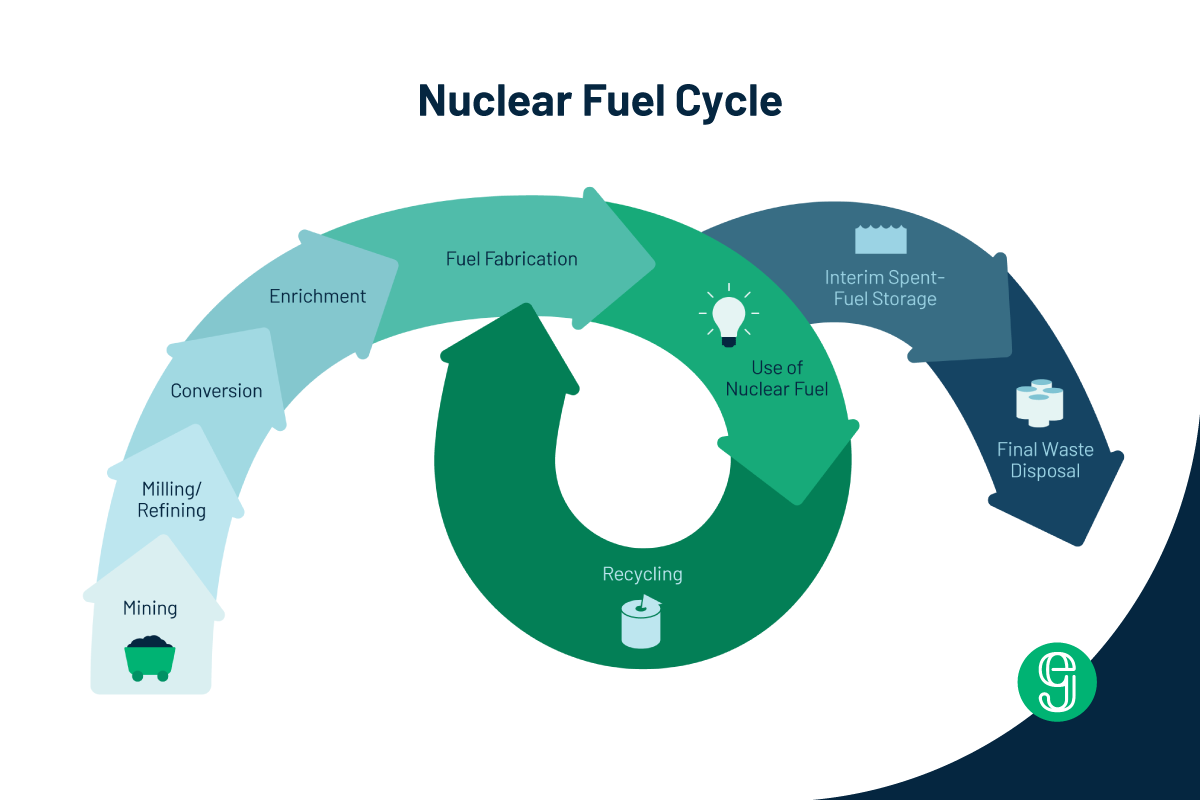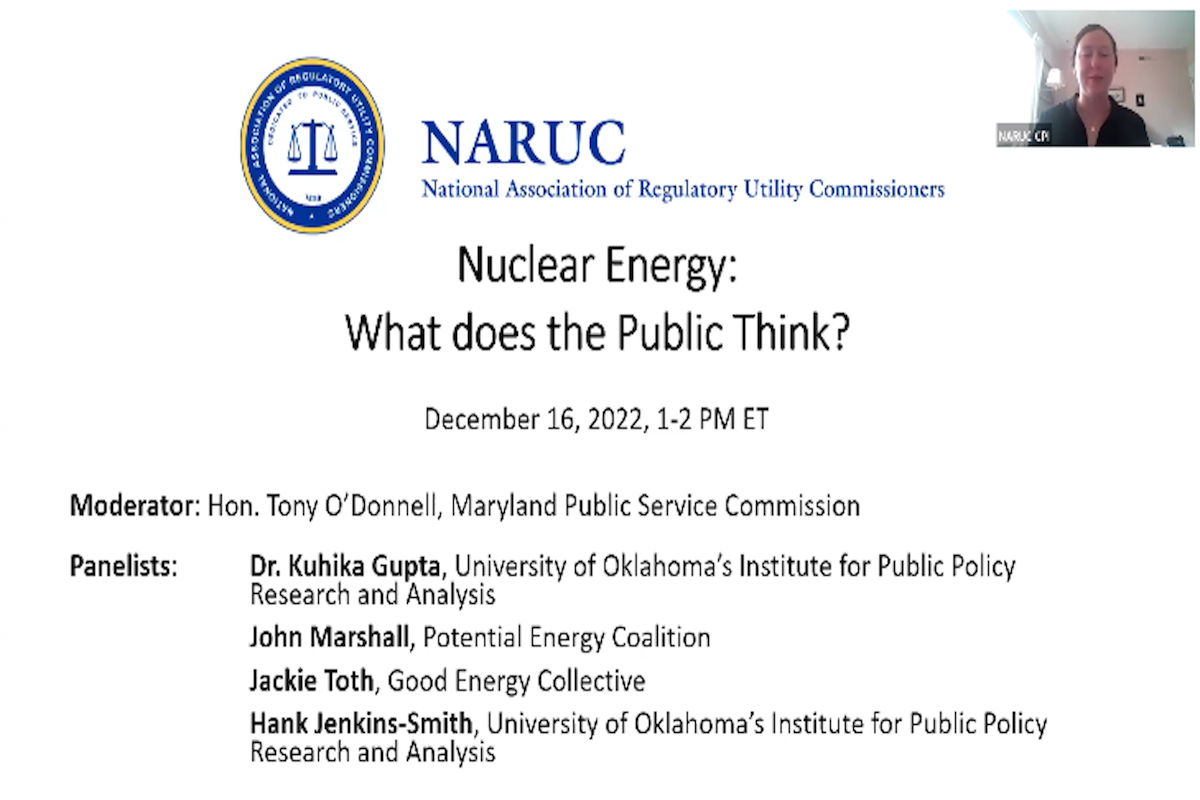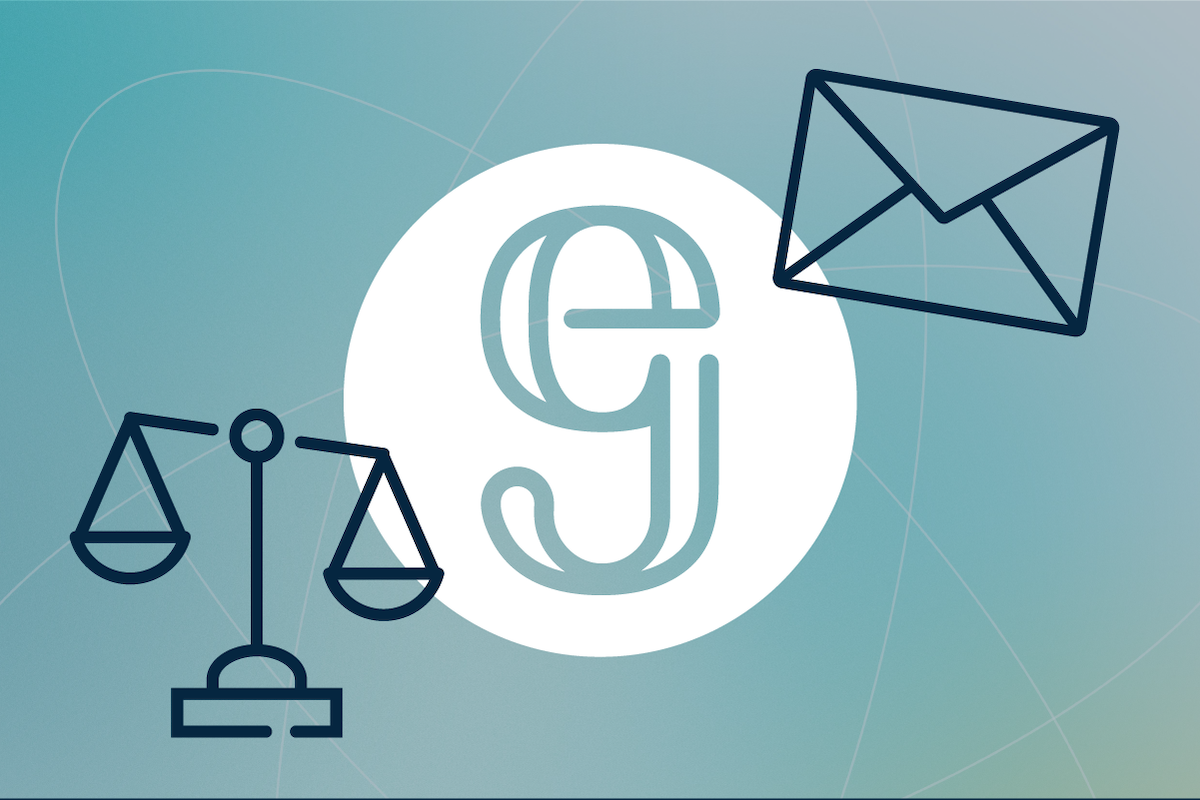A written discussion of a National Academies of Sciences, Engineering, and Medicine 2022 publication

We met at the end of September in D.C. to plan for the last quarter of 2022 and 2023. A portion of our retreat included a discussion of a National Academies of Sciences, Engineering, and Medicine 2022 publication.
Check out our "Collective Thoughts" about the piece below (which also serves as the premiere of our newest feature)!
The Publication
National Academies of Sciences, Engineering, and Medicine 2022. “Understanding the Societal Challenges Facing Nuclear Power: Proceedings of a Workshop.” Washington, DC: The National Academies Press. https://doi.org/10.17226/26606
Ariel Gould, Environmental Justice Policy Council
Environmental justice issues should be incorporated into scientific communication about new nuclear plants. This includes understanding that many environmental justice communities don’t trust nuclear technology because of its harmful legacy in many EJ communities. Nuclear project proponents should center the voices of the community and not assume the public is incapable of understanding nuclear technology because they aren't nuclear scientists. Nuclear project proponents should work with the community to determine everyone's baseline knowledge and fill in the gaps. In many cases, the public can help identify issues that scientists and operators might have missed. Lastly, long-term acceptance of new advanced nuclear projects will hinge on extended periods of safe operation. Many communities do not want to be the "guinea pig" for new nuclear energy technology. Still, they might be more accepting when new reactor designs have demonstrably operated safely in other locations.
Jessica Lovering, Executive Director
Finally, a great history to explain how public perception of nuclear energy has been shaped over time. Sheila Jasanoff provided a helpful categorization of risk perception: the technocratic approach and the social-cultural approach, with the latter rooted in understanding how risks are presented to and interpreted by the public, how their perception differs across groups and time, and how political cultures affect how risks are managed. These proceedings would be worth the read just for that understanding, but there are also valuable insights on how to address some of the societal challenges of nuclear going forward. A frequent issue that surfaces is around trust: how to build and sustain it and how easy it is to lose trust from local communities. Most importantly, there are no shortcuts—building trust takes time and resources. I think we all accept the failure of the knowledge deficit model of science communication—where more information about a technology automatically leads to higher support—but the workshops’ participants provided great examples of how this has failed specifically for nuclear with regard to mortality figures. I appreciated Baruch Fischoff comments on the importance of including the social, behavioral, and decision sciences for engaging with the public, as most experts overestimate how well they understand what the public knows and what information they want. Seth Tuler also made an important point that new marketing or specific attempts to persuade people can often backfire. Perhaps most relevant for Good Energy’s work were the comments by Nick Pidgeon regarding the development of a “new social contract” based on designing an energy system to meet the stated needs and values of the community. Similarly, Kirsty Gogan highlighted that marginalized groups may be more opposed to nuclear energy because they have not been involved in decision-making regarding the technology historically.
Michael Mouton, Communications Director
These workshop proceedings are incredibly significant in terms of understanding the need for strategic communications planning on how to meaningfully engage with potential host communities during the siting for new nuclear projects. While nuclear project proponents should develop specific processes and communications strategies to encourage public participation that are easy to replicate, the piece does a good job emphasizing the importance of leaving space to tailor these procedures to communities and their histories and institutions. Procedural justice means the system, regardless of the community, must work to facilitate public participation that educates, creates space for engagement with nuclear experts, and produces an outcome that is just for that community. Success here must be built brick by brick. While we don’t want a one-size-fits-all approach, we do want successful cases, stories, and narratives of advanced nuclear acquiring substantive consent after an equitable, participatory process. These stories can help potential host communities understand the impact and the benefits as told by peer stakeholders in other areas and assure them that nuclear project proponents are genuinely invested in a Just Transition.
Khalil Ryan, Policy Analyst
The NAS Societal Challenges publication provided invaluable information concerning the general perception of nuclear energy. The workshop, which focused on honest public discourse regarding the concerns of various communities impacted by nuclear power, could be key to recognizing and resolving fears surrounding nuclear power. I found insightful the discussion over what we can learn from the experiences of other industries, especially nuclear decommissioning, aviation, and wind and solar projects. The conversation about nuclear decommissioning focused on public engagement surrounding the decommissioning process of the San Onofre nuclear plant. The public engagement process included local elected officials who informed the public and listened to feedback from local community members. I viewed the most important lesson learned from the case of San Onofre was that community trust is hard to garner and easily lost. The expertise from the scientific community doesn't necessarily ensure that the public will trust nuclear experts. The public must be able to engage and participate in decisions surrounding their local community, especially nuclear power. Relating to my work surrounding civil nuclear exports, communities must be able to participate in the process surrounding nuclear energy and integrating it into their power grid. Local groups and community members must have a voice concerning power generation methods and know their concerns are heeded and addressed. Without this participation, movements hesitant to integrate nuclear energy into power grids will continue in emerging nuclear countries.
Cleo Schroer, Policy Analyst
What stood out the most from these workshop proceedings was the need to pave deeper pathways to trust and engagement with communities. There is a future for advanced nuclear where communities work in tandem with new project developers while incorporating valuable local knowledge streams. Yet this future will not come naturally. To truly earn consent, new reactor developers must reckon with the troubled history of siting decisions and construct a new status quo. I was most taken aback by the workshop silence after University of Michigan's Todd Allen asked the room to find examples of which communities were "actually empowered to proactively decide what energy technologies it wanted to support." A just transition will be collaborative, community-grounded, and non-hierarchical, as everyone should have the power to determine their clean energy futures. This workshop readout does an incredible job of laying out how far we are from that future.
Jackie Toth, Deputy Director
I was interested in the insights of workshop participants on the issue of public participation in the siting process for new nuclear projects—who participates and how to execute effective participatory processes. We know pretty confidently that a demonstrated commitment from reactor companies to procedural justice—involving all impacted stakeholders from the outset of project consideration—is necessary to gain community trust and consent and achieve a successful project. But historically, industry and the federal government haven't successfully achieved this for nuclear. Thomas Wellock shared that U.S. Nuclear Regulatory Commission public hearings on reactors up for licensing have never succeeded in facilitating public trust in nuclear. This is something Raphael Kasper and Steven Ebbin identified in the early 1970s in "Citizen Groups and the Nuclear Power Controversy." Similarly, M.V. Ramana from the University of British Columbia shared that earning public trust in nuclear energy is harder when governments seek, or appear to seek, social license explicitly to build more reactors. I took heart from Baruch Fischhoff at Carnegie Mellon University that many learnings out of the social and behavioral sciences point to how to inform and engage the public successfully. We're not starting from scratch; we have to bring that knowledge to bear for nuclear, such as through the new recommendation in statute that the Office of Nuclear Energy support social science scholarships and fellowships through the University Nuclear Leadership Program.















































.png)























.png)






%252520(1200%252520%2525C3%252597%252520800%252520px).png)







